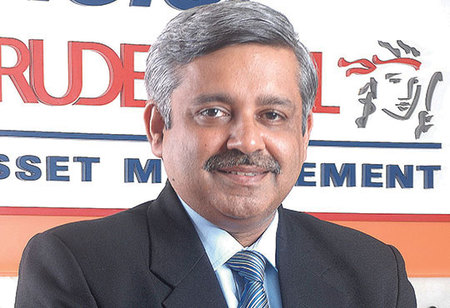Achieving Success with Technology Consultants
By Lalit Popli, Head of Information Technology, ICICI Prudential Asset Management Company
 Big Question?
Big Question?
"To be or not to be..." is the opening phrase of a soliloquy in the "Nunnery Scene" of William Shakespeare's play Hamlet. In the speech, a despondent Prince Hamlet contemplates death and suicide while waiting for Ophelia, the love of his life. Similarly for any Business “To go to Consultant or not” is the question that always is on the horizon with no clear choice.
However before we get into understanding the dichotomy of consultants let us look at the brief history how the consultants came about.
History tells us that the rich and powerful have always needed advice on how better to manage their affairs and make effective decisions. Biblical kings had prophets, Indian Maharajas had their mantris and the rich had their munim’s. Even the Mafia had their consigliere. Yet it is said that the formal organizations that specialized in management advice didn’t actually emerge until relatively late in the industrial age.
So who are these advisors, these so called people whose inputs decided the decision of the ruler and hence the history. If the rulers or powerful had followed their advice in totality would we be having such a contradicting and some-times bloody history.
Consultant!!!
It is very funny to note that the word Consultant has come from latin word “consultare”, which means to discuss. This is diagrammatically opposite to what we understand about consultants which is solution oriented guidance which will overcome the challenges that we are currently facing.
Technology Consultant – Focusing on Technology
Let us narrow down the discussion and limit it to Technology Consultants. Today technology is the base on which a refined business processes are designed and delivered. However Technology itself comprises of various elements:
a) Application with various domains.
b) Network
c) Security
d) Web-Servers
e) Databases and its servers
f) Web-services etc.
There are generalists who have an overview of all the elements and can look at the big picture and then there are specialists who have in depth knowledge of a particular area and this plays a very important role while implementing solutions.
Not many organization can have both the type of people i.e. generalist and specialist in all areas in the organization for a long period of time. These are the organizations that require help when they need to implement a particular solution but may not have a requisite skill in a particular area or to implement a large project where they need some-one to oversee the implementation and act like a Project Director/Manager.
Do you need a Technology Consultant?
This is a million dollar question and can be answered actually quite easily. If the skills that you are looking for the project delivery or to resolve a given issue is available in your team then you do not need the consultant, else you need him/her. The only important point to be noted here is that one has to be absolutely honest with one self on the team’s skill mapping.
How do I select the right Technology Consultant?
Let’s assume that you have evaluated and decided that you do need a consultant, the next obvious step to hire one and here again there are plethora of options through which you have to navigate.
Step 1: Write down your requirements: While you understand your business in depth and you know where and why you need the consultant, the consultant does not know your expectations. Writing down your requirements in as much detail as possible bridges the gap.
Step 2: Decide if you want to work with individual consultants or a firm: There are obviously pro’s and con’s in both the decisions, the swing factor would be the cost. It is estimated that individual consultants would be available at much lower cost than the firm.
Step 3: Prepare the universe of consultants that you would like to meet before deciding who fits your bill. My personal view is reference is a big help here. If in the past the consultant has exhibited good delivery qualities and this comes from people that you know, there is a slight comfort about the credibility of the consultant. Else one will have to evaluate them with the checklist of parameters that you would have listed in step 1.
Step 4: Background Check: Once you have the parameter and the list, schedule interviews with the consultant, meet their reference and most importantly ask them to explain to you their understanding of your expectations from them and how they would go around fulfilling it. I have found that this clears lot of confusion and rapport starts building.
Step 5: Agreements, Commercials and final delivery: The last stage of selection is to close the commercials, sign the relevant agreements with the consultants and given him/her/them time to deliver to the agreement as agreed upon.
Technology Consultants play a big part in many successful projects but may also be part of many failed projects, hence selecting the right partner is the key and I suggest you spend enough time to do so yourself.
Happy Project Delivery to you.


